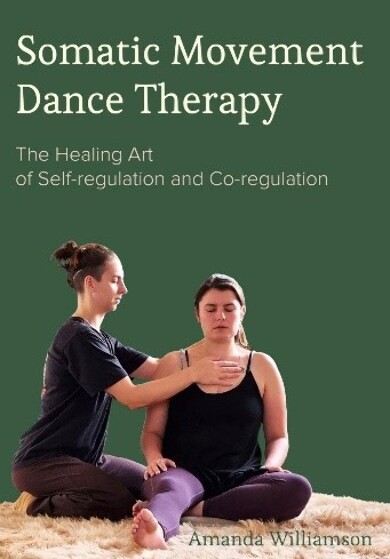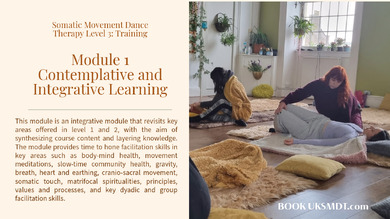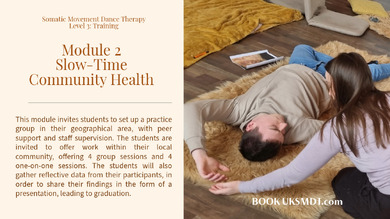Accredited by ‘International Practitioners of Holistic Medicine’ and associated with ‘The Association for Somatic Movement Dance Therapies, United Kingdom & Éire’

The module covers the following areas in theory and practice:
The UKSMDT scope of and ethics of practice
Experiential awareness of anatomy and physiology in movement
Self-regulation and co-regulation
Body-centered anatomical and physiological meditations
Slow-time movement health (being and non-doing)
Parasympathetic ease-and-release (Polyvagal theory and the vagus nerve)
Myofascial release and soft-tissue rolling (muscles, soft-tissues)
Cranio-sacral movement (midline health)
The Somatosensory system, the integumentary system, and the ethics of touch
Fulcrums of support and soft-tissue reorganization
Heart-centered dyadic and group offerings
Skeletal-muscular health: gravity, body, breath, bones and earth
Elemental movement work (earth, fire, air, water and ether)
Collecting and organizing data and reflections
Pre-reflection, reflection and analysis in dyadic and group work
Matrifocal symbolism and values (earth-centered moving values and principles)
South-east Asian influences and movement meditations
Research ethics in community work


